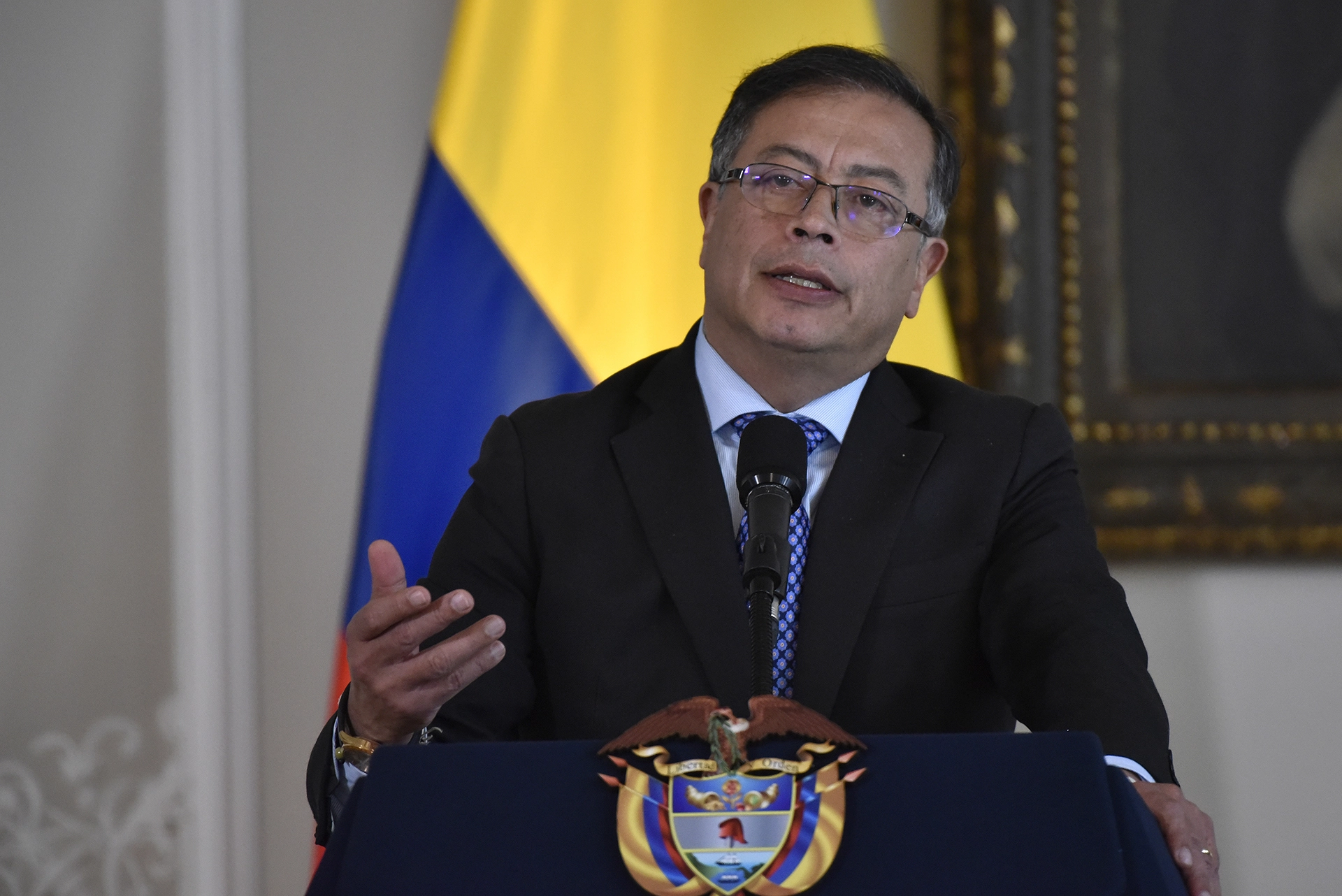
South African court dismisses a major lawsuit by 140,000 Zambian women and children against Anglo American for Kabwe lead poisoning. A setback for affected communities enduring the lasting impact of lead contamination.
Colombia’s new president Gustavo Petro wants to decouple his country’s economy from fossil fuels. Starting with a ban on new exploration permits.
“We have decided not to award new oil and gas exploration contracts, and while that has been very controversial, it’s a clear sign of our commitment in the fight against climate change. This decision is absolutely urgent and needs immediate action.” With these words, spoken on Thursday 19th January during a panel at the World Economic Forum in Davos, Colombia‘s minister for mining and energy Irene Veléz announced a sharp change of pace in the South American country’s energy transition.
Gustavo Petro, elected president of Colombia in the summer of 2022, promised during his campaign to put an end to the country’s dependence on fossil resources. In the first months of his administration, however, he was faced with a divided Congress, in which no party holds a majority, and rather gloomy economic prospects. Finance minister José Ocampo even contradicted Petro on multiple occasions, telling the press that Colombia would release new fossil fuel exploration permits.
Minister Irene Veléz’s announcement seems to have cleared up, once and for all, the administration’s position. It was subsequently also confirmed by Gustavo Petro. Speaking to journalists in Davos, the Colombian president said: “We are convinced that strong investment in tourism, given the beauty of the country, and the capacity and potential that the country has to generate clean energy, could, in the short term, perfectly fill the void left by fossil fuels.”
Colombia actually has no need for fossil fuels for its own energy demand, given that approximately 80 per cent of its current energy supply comes from renewable sources, primarily hydroelectric. The problem is that, especially in the past four decades, the country has been heavily reliant on income from fossil fuel exports. In 2020, crude oil was the most exported commodity in the country, generating almost 6.9 billion euros for the economy, primarily thanks to trade with the United States. Essentially, oil has become a cornerstone of the Colombian economy. Thus, Petro’s decision seems brave, all the more so in a country that borders Venezuela, which has suffered an economic collapse that has caused mass emigration, with millions of people leaving the country
However, Gustavo Petro, speaking at COP27 late last year, asserted his confidence in the fact that “the market is not the main mechanism for overcoming the climate crisis. It was the market, through the accumulation of capital, that caused it. And it will never be the solution. The climate crisis can only be overcome if we stop consuming fossil fuels.”
Siamo anche su WhatsApp. Segui il canale ufficiale LifeGate per restare aggiornata, aggiornato sulle ultime notizie e sulle nostre attività.
![]()
Quest'opera è distribuita con Licenza Creative Commons Attribuzione - Non commerciale - Non opere derivate 4.0 Internazionale.
South African court dismisses a major lawsuit by 140,000 Zambian women and children against Anglo American for Kabwe lead poisoning. A setback for affected communities enduring the lasting impact of lead contamination.
Controversial African land deals by Blue Carbon face skepticism regarding their environmental impact and doubts about the company’s track record, raising concerns about potential divergence from authentic environmental initiatives.
Majuli, the world’s largest river island in Assam State of India is quickly disappearing into the Brahmaputra river due to soil erosion.
Food imported into the EU aren’t subject to the same production standards as European food. The introduction of mirror clauses would ensure reciprocity while also encouraging the agroecological transition.
Sikkim is a hilly State in north-east India. Surrounded by villages that attracts outsiders thanks to its soothing calmness and natural beauty.
Sikkim, one of the smallest states in India has made it mandatory for new mothers to plant saplings and protect them like their children to save environment
Chilekwa Mumba is a Zambian is an environmental activist and community organizer. He is known for having organized a successful lawsuit against UK-based mining companies.
What led to the Fukushima water release, and what are the impacts of one of the most controversial decisions of the post-nuclear disaster clean-up effort?
Nzambi Matee is a Kenyan engineer who produces sustainable low-cost construction materials made of recycled plastic waste with the aim of addressing plastic pollution and affordable housing.








